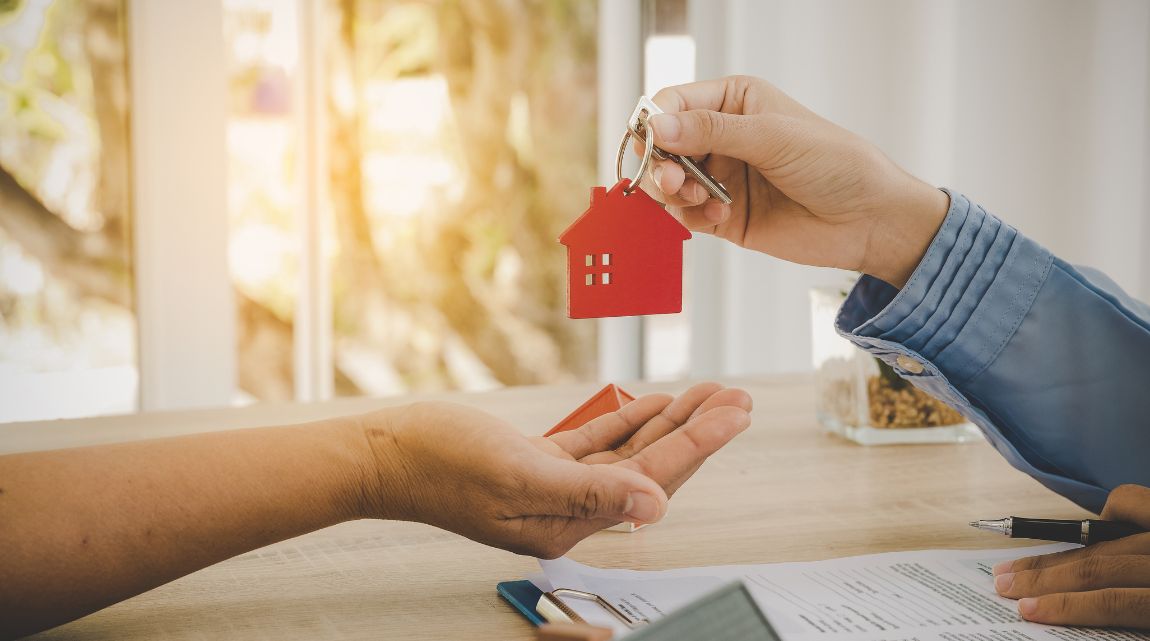Welcome to our comprehensive guide to buying property in Chile. Whether you're an expat looking for a new home or a foreign investor interested in the country’s developing real estate market, this guide has everything you need to know to make an informed purchase.
Chile boasts one of the strongest economies in South America, as well as a wide range of stunning landscapes and coastlines that stretch from the southern border of Peru all the way down to the Antarctic. However, property costs remain low compared to those of the US and Europe because of the weakening of the Chilean peso over the past few years (see the latest exchange rate). For these reasons and more, Chile has become a very attractive option for foreign home buyers and property investors.
In this guide, we'll cover everything from the legal requirements of buying property in Chile to the best areas to invest in. We'll also discuss the different types of properties available, how to work with a real estate agent and how to transfer money internationally when making a purchase.
Who can buy property in Chile?
Any individual or corporate body may purchase and hold real estate in Chile, whether you live there or not. The only restrictions on foreigners owning property apply to border areas, which are not particularly desirable locations for out-of-towners anyway.
Foreigners possess the exact same property rights as Chileans, and these rights are clearly defined and fully protected. However, it is quite difficult for foreigners to obtain a mortgage in Chile, so most international buyers pay in cash.
Foreign buyers will need to obtain a tax identification number, known as a Rol Único Tributario, and register the property with the Chilean Internal Revenue Service. You’ll also need to hire a local lawyer or notary to complete the purchase process, as well as pay any associated fees and taxes, including capital gains tax and property tax (which we discuss in more detail below).

Where are the best places to buy?
Northern Chile is best known for its mineral resources and the spectacular, moon-like scenery of the Atacama Desert, which is the driest place in the world. The south is much chillier but also full of natural beauty, such as vast glaciers, thousand-year-old forests, fjords and serene lakes. It includes part of Patagonia (the rest of this region belongs to Argentina), a mecca for outdoor enthusiasts.
Most of Chile’s population resides in its temperate central region, which claims the capital city of Santiago and the main international airport. Central Chile is also well known for its gorgeous beaches, which draw the country’s elite every summer, and its impressive winemaking.
Foreign investors account for the vast majority of real estate sales in Chile’s wine country, which includes the historic Maipo Valley (with grape plantings dating from the 16th century) and the prestigious Colchagua Valley (about 100 miles south of Santiago). Most of these buyers are based in the US, Brazil or Argentina.
While foreign property buyers have historically been unusual in Santiago, the city offers a range of property options, from modern high-rise apartments to historic colonial houses. Other major cities, such as Valparaiso and Viña del Mar, are also popular investment locations due to their growing economies and attractive coastal locations.
What’s the housing market like in Chile?
The most recent figures from the Chilean Chamber of Construction show that house prices fell in the second half of 2022. Meanwhile, a November 2022 report said that most real estate firms expect the economy’s performance to dip, which could lead to “a drop in activity for 2023”.
The good news is that properties in Chile are relatively affordable compared to other countries in the region. While prices rose before and in the immediate wake of the Covid-19 pandemic, they are still lower than in other major cities in South America, such as Buenos Aires, São Paulo or Bogotá. This affordability, combined with an overall high standard of living, has made Chile an attractive destination for both domestic and foreign property buyers.
While home ownership is still the ultimate goal for most Chileans, renting is a more common housing option than in other countries in the region. This has led to a more developed rental market, which can be attractive for investors seeking a steady income stream.
Buying property in Chile: Things you need to consider
Finding a reliable real estate agent
Real estate agents in Chile aren’t regulated by a single federal regulatory body in the country. That means it’s important to find one with a good reputation and proven track record.
For greater peace of mind, you might consider engaging a third-party real estate consultant who can help you through each step of the process and reduce stress and uncertainty. This type of support is especially useful if you don’t speak fluent Spanish or have a trusted Chilean contact. You will also most likely need to hire a lawyer to investigate the property’s legal history and ensure that it is free of debts and liens.
Choosing your property
Particularly at the beginning, it can be overwhelming to make a decision on the property you want to buy in Chile. Here are a few things you should bear in mind.
Location
Depending on the region of Chile you are opting for, you may have a sense of what you want from your location. If you are looking in Santiago, amenities might be more readily available, but if you are looking in more rural areas you may want to think about proximity to public transport, schools, parks and shops.
While Chile has historically been known for its low crime rates and safe streets (particularly compared to other South American countries), petty criminals are more prevalent in its larger cities. It’s worth doing your own research and chatting to your estate agent, who’ll have more inside knowledge on this.
Property condition
If you're not familiar with the Chilean building codes and standards, consider hiring a professional inspector to help you identify any potential issues. Having said this, buyers should beware of a few issues when it comes to valuing property in Chile, especially in more rural areas:
- Two intrinsically equal properties can be valued quite differently, either because of seller inexperience or misperceptions surrounding the neighborhood's social status. Once you find a desirable location or specific property, send in an appraiser for a more realistic figure.
- Sometimes simply having a structure on a piece of land, regardless of its quality, grossly inflates the price of the property, so be sure to separate the raw land cost from the cost of the structure. Note that it is often cheaper to build something yourself in Chile than to buy a preexisting structure.
- What Chileans value most, such as being close to tourist attractions, can differ from what foreigners prefer. A seller's idea of a fair price may vary greatly from yours.
- Many properties in Chile will not meet the national building code. Codes tend to be enforced in larger towns and cities, but not necessarily in smaller municipalities that have more limited budgets. Be sure to rely on an engineer to inspect the structure and determine the costs of fixing any problems. For houses built to American or European standards (e.g. by a larger Chilean construction company), expect to pay a premium.
Registering the sale
After the buyer and seller settle on a price and the property’s title is confirmed in a purchase agreement, the entire purchase price gets held in escrow until the transfer is approved by the Chilean property registration agency, the Conservador de Bienes Raices. This process takes about 20 to 40 days. Note that all sale contracts must be notarised prior to registration or else they won’t be valid.
Fees for buying property in Chile
Expats considering purchasing property in Chile should be aware of the taxes and fees associated with real estate transactions in the country. The following are some of the most common costs:
- Brokerage fee: Also known as the commission, this is the fee that the real estate agent charges for their services. In Chile, brokerage fees are typically up to 3% of the purchase price of the property (based on data from various agents online), but they can vary depending on the services provided.
- Notary fees: These are fees for preparing and signing purchase agreement and other legal documents. Notary fees in Chile are set by law and are based on the value of the property.
- Legal fees: These fees can be charged by a lawyer or other legal professional to assist with due diligence, review the purchase agreement and provide other legal services.
- Taxes: There are various taxes associated with real estate transactions in Chile, including transfer taxes, value-added tax and stamp duty. These taxes may add up to 5-10% of the purchase price of the property, so it's important to factor them into your budget.
Remember that fees can vary depending on the specifics of the transaction and the region, so it's always a good idea to consult with a local expert to get a more accurate estimate of closing costs for your particular transaction.
How to transfer money to Chile
So you’ve decided to buy a property in Chile. But how can you transfer money to the country in the safest and most cost-effective way possible?
Traditional banks tend to be the most expensive method for transferring money internationally because of their high fees and foreign exchange rate markups. When paying for your new property and the expenses associated with it, such as renovations, regular maintenance and property taxes, you should think about relying on a modern online money transfer provider instead.
There are a variety of providers that make cross-border payments cheaper and easier. They can even help you set up recurring payments like monthly mortgage payments.
Comparing rates and fees from different providers can help you get the best deal and save you money in the long run. That's why we recommend using our money transfer provider comparison tool to help you find the right provider for your needs.
Parts of this article have been written with the assistance of ChatGPT. Contributions and edits have been added by an in-house editor.








